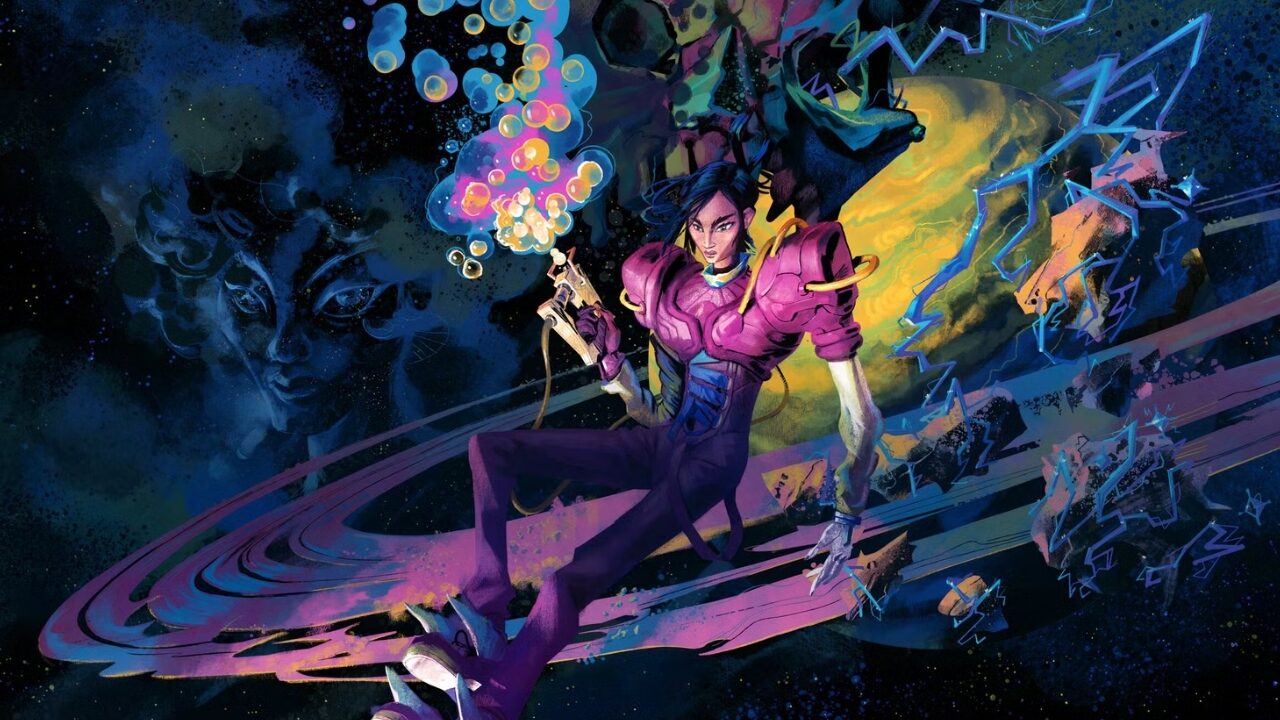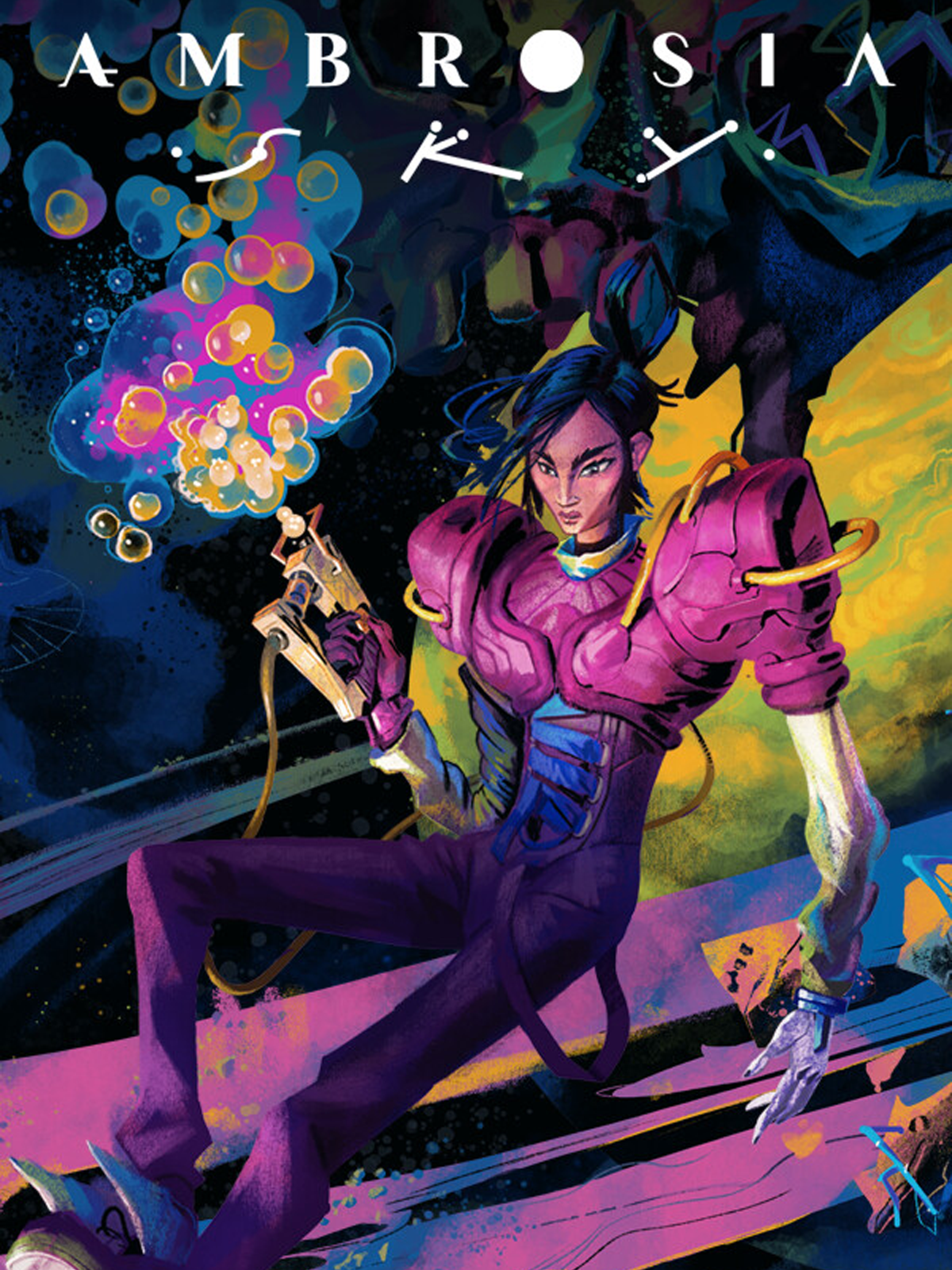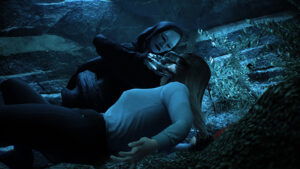I don’t think I fully knew what Ambrosia Sky was when I first saw it, but I was certainly intrigued by the idea of it. Initial trailers made it seem like PowerWash Simulator, but in space, and that was certainly a concept I could get behind. But when it started throwing words like “narrative” and “Immersive Sim” around, then I knew for sure I had to give it a look.
However, Ambrosia is certainly not the word I would use to describe this sky—and I might go so far as to say it’s a case of false advertising. What’s on offer is a fairly dreary game that does little with its setting or mechanics, and the more I played, the more I felt myself drifting into the abyss of sleep.
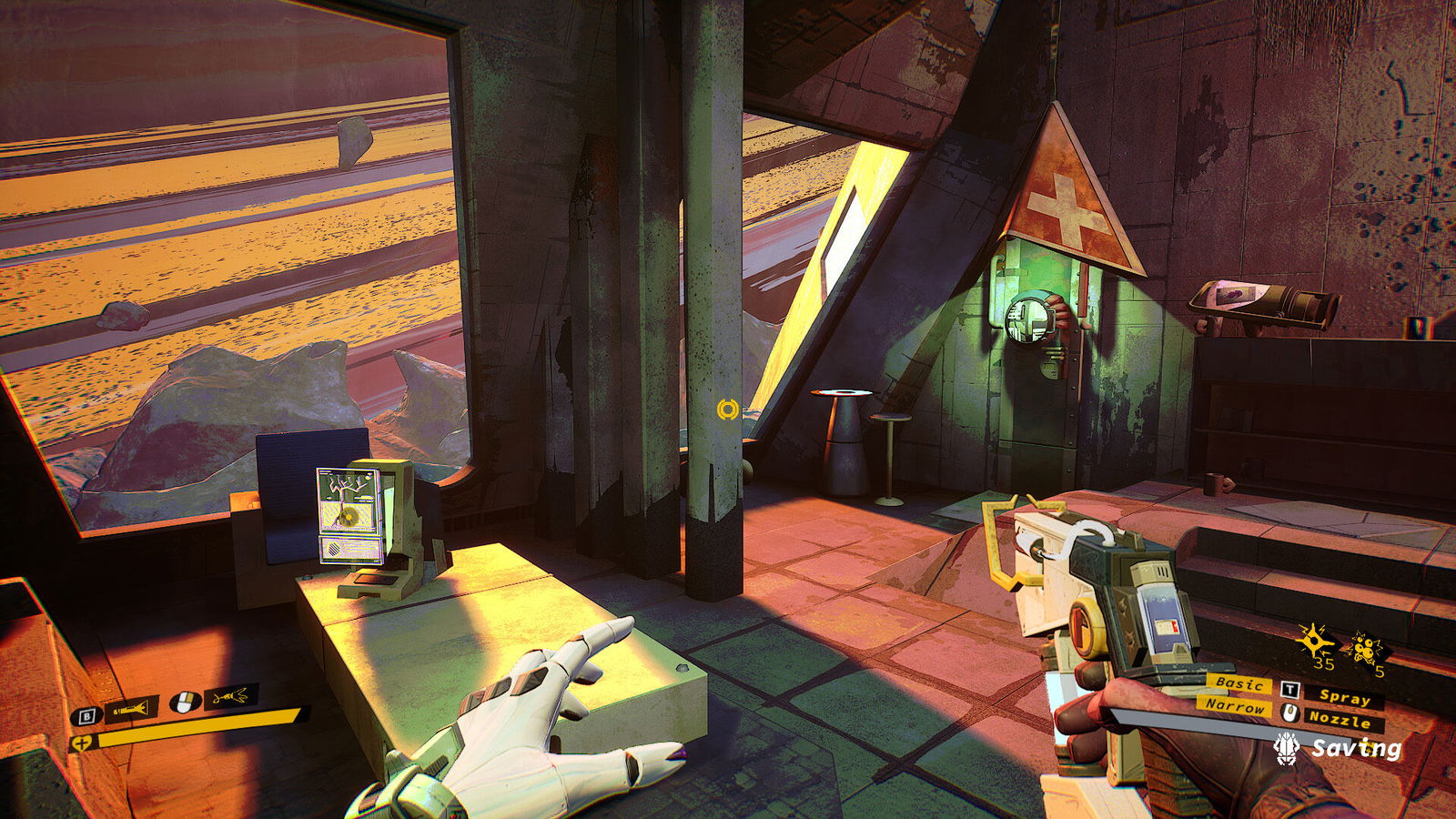
Ambrosia Sky is set within a large space colony located within the rings of Saturn. After fleeing a dying Earth, scientists set up an agricultural facility in hopes of finding ways to sustain life in the far reaches of space. However, the facility was hit with a strange fungal phenomenon referred to as “The Crisis,” causing practically everyone within to die of a disease known as “Clusterlung.”
Players take on the role of Dalia, a bioengineer—the game refers to them as “mystical field scientists,” which I couldn’t help but laugh at—known as a Scarab, looking to unlock the secrets of Immortality in what’s known as “The Ambrosia Project.” As Dalia, players will explore the derelict facility, uncovering traces of what happened as they complete various missions.
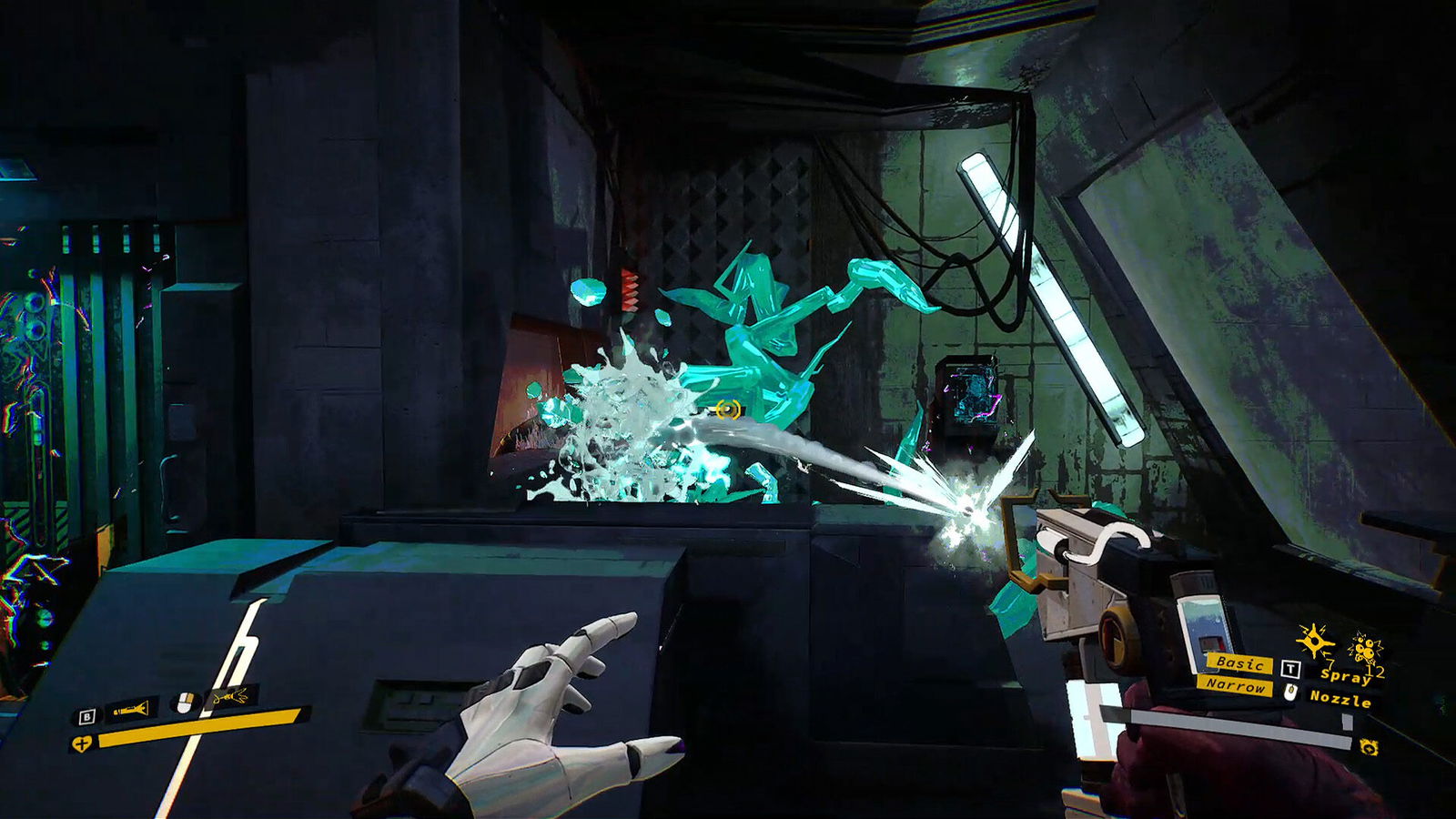
On its face, it’s not a bad story, but Ambrosia Sky fumbles at the five-yard line by doing something I’ve complained about in many past reviews—having a protagonist who cannot shut up. Now, I’m not fundamentally against a character having a voice or being emotionally impacted by the events of the game—the game makes it clear that Dalia had some personal connection to this place, and she should be allowed to reminisce about her memories. But when the player can’t go five seconds without the person they’re inhabiting remarking on things they just witnessed, it sucks any kind of atmosphere the game could have…well, into the vacuum of space.
However, since the facility is inhabited primarily by corpses, the main source of backstory players get outside of Dalia, and some visual storytelling is text logs, in the form of emails left behind by the inhabitants. If players take the time to read them, they can start forming their own opinions about what happened, or just take in the atmosphere on their own. But this kind of interactive storytelling is constantly undercut by Dalia loudly asserting what the player should be thinking.
“What Ambrosia Sky should have done was just lean all the way into its PowerWash Simulator inspirations.”
It becomes pretty apparent, really quickly, that there was some corporate negligence going on at the facility, particularly with the one supposedly in charge. At one point, after reading an email where the person in charge hand-waves away fears of disease and death, Dalia says, out loud, apparently to herself, “Of course, she didn’t care…people died because of your negligence!”
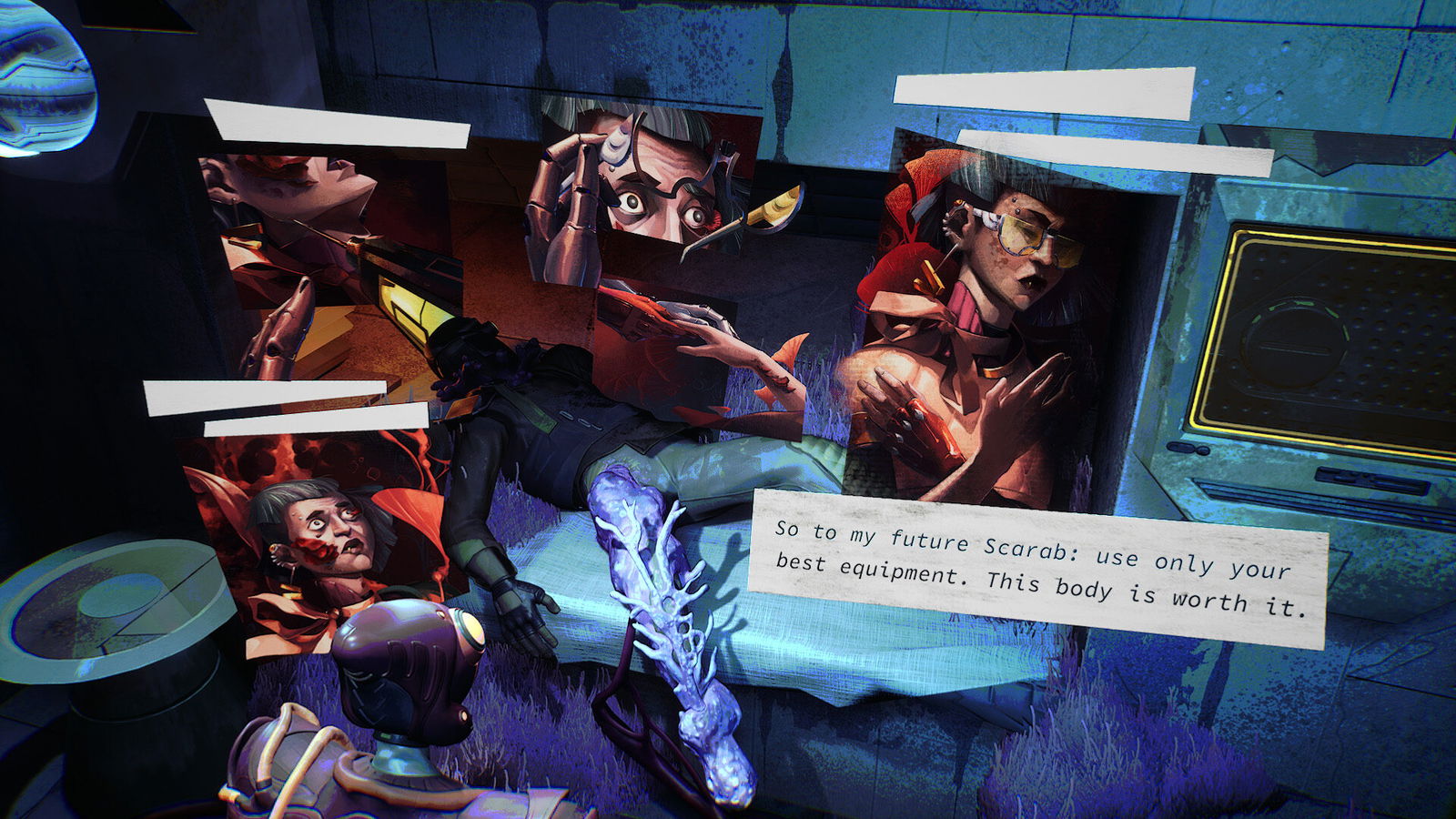
It’s something that has always bothered me, particularly with games like this, because it creates an incredibly condescending tone—like the game doesn’t believe you’re smart enough to put the pieces together and needs to declaratively state “DID YOU GET THAT PLAYER? THE OBVIOUS BADGUY IS BAD.” And the constant break in storytelling undercuts what Ambrosia Sky is trying to do as a game.
On the Steam Store page, the game is described as “a first-person immersive sim.” However, to me, this is a straight-up lie—or at the very least, flagrant false advertising, primarily because it’s barely a simulator and it’s hardly immersive. Players undertake various missions, all of which involve exploring a small, relatively empty area and using their chemical gun to clear away any pesky fungi that may be blocking their forward path.
It’s as straightforward as that. There’s no real room for experimentation, no real options for the player to forge their own path or find the best solution. Almost every level is a linear sequence meant to facilitate storytelling, which would be fine if the game were allowing players to take in the atmosphere on their own terms, but since it barely does that, it just ends up feeling like the world’s most boring early-90s FPS.
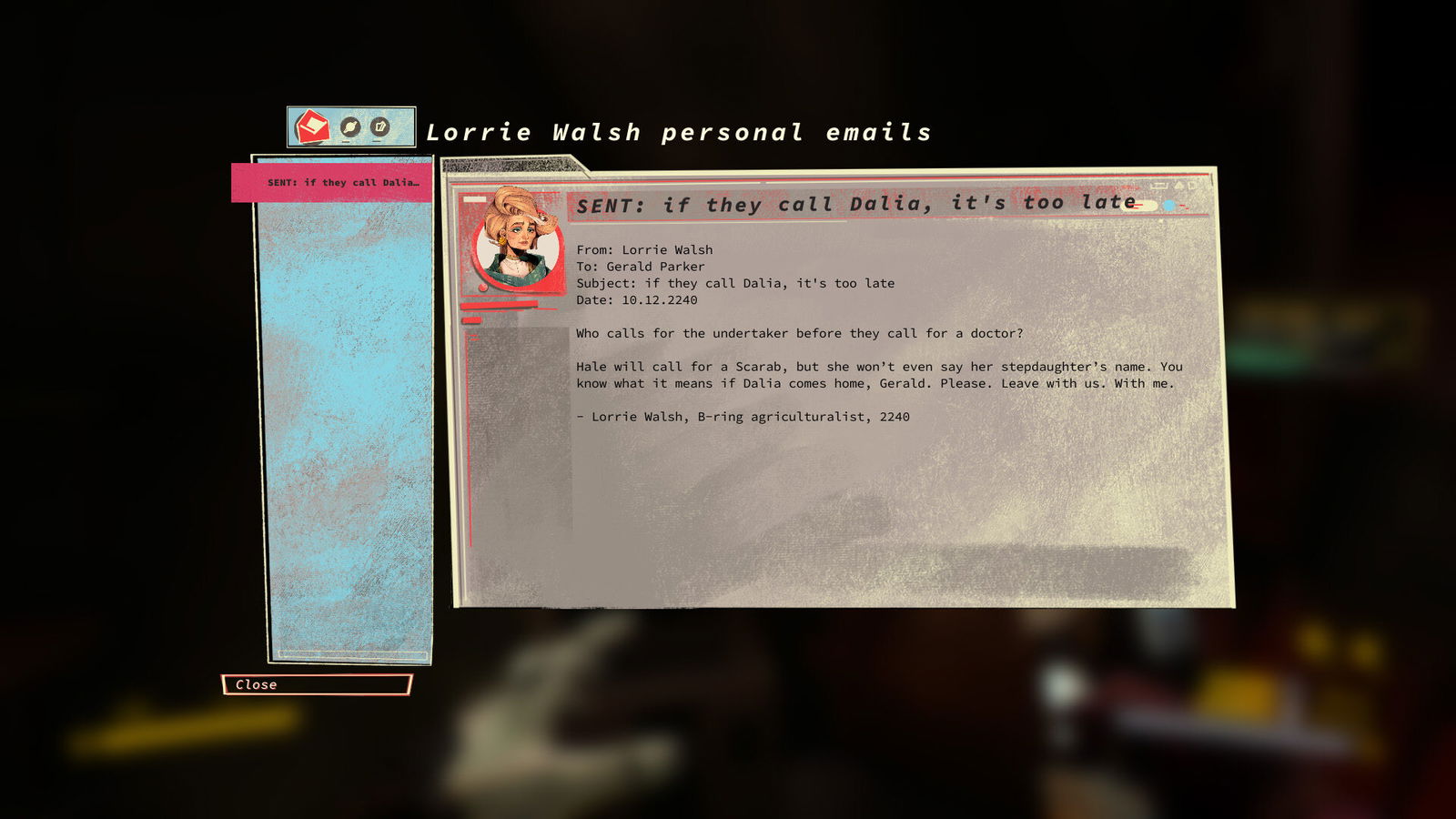
Players can collect fungal fruit and little materials to upgrade their chemical gun, but these upgrades are mostly superfluous and are only RARELY needed to access areas that are genuinely fundamental to the forward path. But since things like the Electric Slime that can power locked doors are actually necessary to complete some missions, there’s hardly any element of choice in this “immersive sim.”
And when it isn’t boring, it can just be straight up broken. Movement physics can be wonky and hard to control. In my time playing, Ambrosia Sky crashed for seemingly no reason—I just started spraying a bunch of fungus and it was apparently too much for the game—and one quest in particular glitched so hard I genuinely couldn’t explore without needing to reload a save and refresh the game, and even then after completing the objective the game glitched and wouldn’t give me the prompt to leave the area.
“When the game implements its soundtrack, it uses a haunting wind section that adds a spiritual tone to the game that feels both tragic and beautiful. “
What Ambrosia Sky should have done was just lean all the way into its PowerWash Simulator inspirations. Have Dalia be part of a clean-up crew needing to return to her former home, seeing the decaying remnants of it and working to get it back to a livable state. It would actually give the player something to do, and could still pepper in bits of storytelling for both her and the player to engage with, and it would’ve been far more compelling than this.
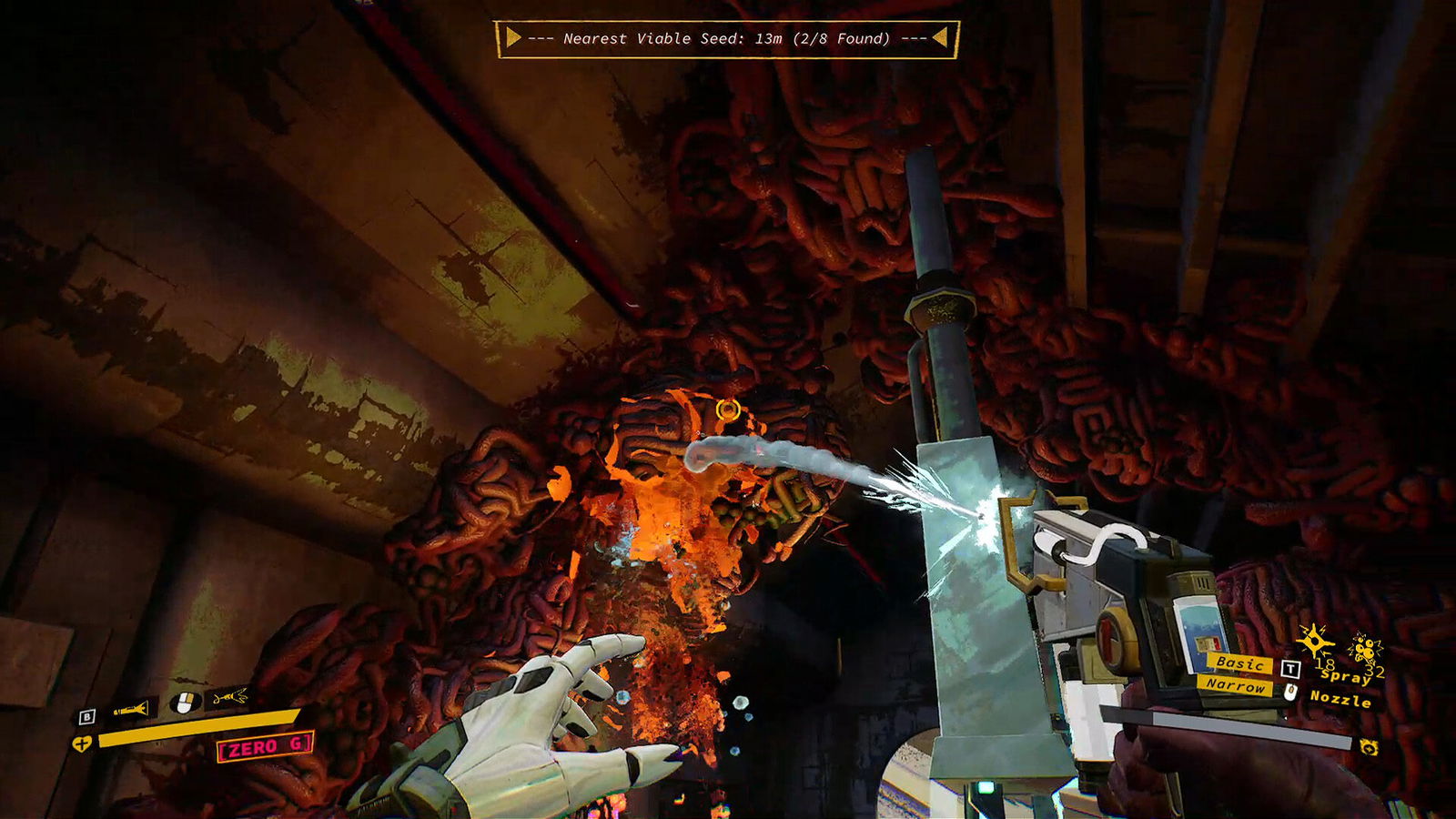
I will say at least that what Ambrosia Sky does have going for it is a pretty nice audio/visual aesthetic. The game does a lot with stark colours and a resolution that isn’t exactly “low poly” but gives the game a rough, almost oil-paint aesthetic that is incredibly striking. When the game implements its soundtrack, it uses a haunting wind section that adds a spiritual tone to the game that feels both tragic and beautiful.
When I started playing Ambrosia Sky, I was reminded a bit of Metroid Prime—the idea of feeling isolated in a desolate place and needing to methodically look over every potential thing for clues about what happened. I kept dreaming of that game, and it never happened. It’s only Part One, so who knows if the game will improve or correct the ship, but as far as first impressions go, this leaves a lot to be desired.
